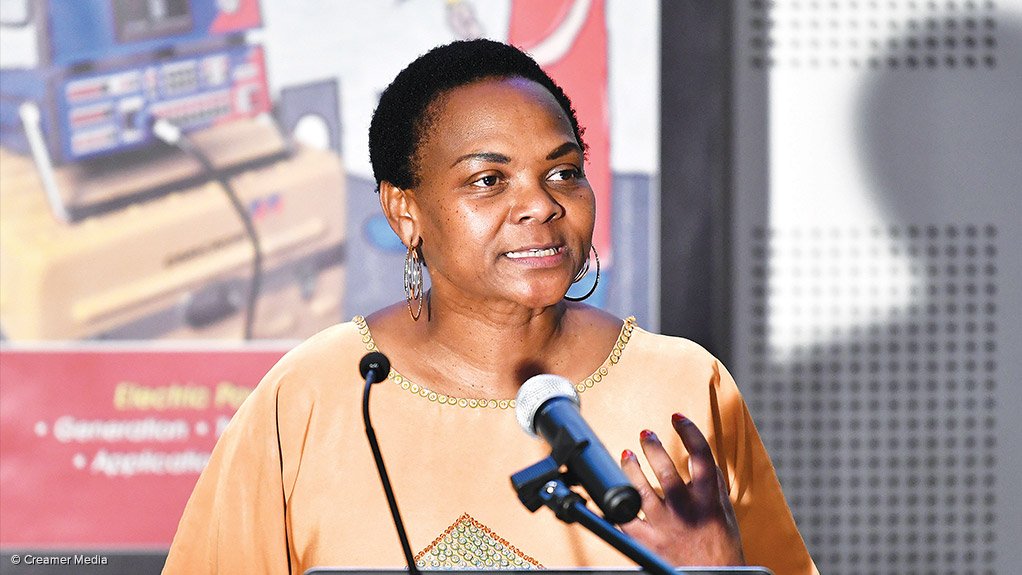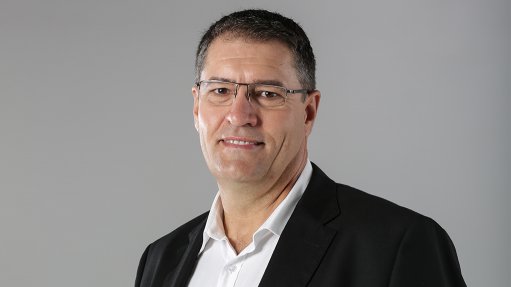Coal industry should ensure that it does not lower air quality to avoid silicosis repeat
JOHANNESBURG (miningweekly.com) – South Africa’s coal industry should ensure that it does not lower air quality to avoid ending up in the same litigious space as the gold mining sector with silicosis.
Earlier this month, a class action settlement was reached with thousands of mineworkers suffering from silicosis and/or tuberculosis contracted in air polluted underground mining environments.
Responding to questions after delivering the keynote address at the Fossil Fuel Foundation’s workshop on air quality and emissions, former Department of Energy (DoE) director-general Nelisiwe Magubane, who is currently a nonexecutive director of Eskom and chairperson of Matleng, a 70% women-owned company that provides energy solutions, urged the fossil fuels industry to deploy cleaner technologies.
“I’m sure you’re aware of the latest settlement of billions of rands on the silicosis case with the mines. What we have in South Africa are very litigious people who, before we know it, are likely to litigate to say we are condemning people of Mpumalanga into having lower air quality standards,” she said.
The province of Mpumalanga has a heavy concentration of coal-fired power stations that are owned and operated by State electricity utility Eskom.
“We need to look into that. We have a silicosis case already won and we need to be able to say to ourselves as the fossil fuels industry, what are we going to do to avoid being in the same space as the mining sector with silicosis?” Magubane asked, in response to independent economic risk consultant Rob Jeffrey, who had drawn her attention to Asean countries all opting for clean fossil fuels as the cheapest sources of energy going forward.
If coal could be used cleanly, South Africa would be able to continue to use it.
“Basically, I’m of the view that there are many opportunities to have a cleaner energy environment, but also to make sure that whatever we have is affordable to the economy of this country because what is happening is that when you look at the profile of the skills that we have, we still need to have an industrially intensive economy, so that we can be able to absorb some of those skills quite easily.
“My view is that the next biggest wave in this country is going to be an uprising of the youth. It is said that about 60% of the population is youth. If that is the case, we need to be able to clean up our environment. Let’s deploy cleaner technologies. Let’s take advantage of energy storage to support the cleaner technologies,” Magubane said in response to Mining Weekly Online.
Earlier, she put question marks over the economic viability of Eskom continuing to be able to apply for increased electricity tariffs to remain in business.
She criticised the policy of granting cost-reflective tariffs because they failed to take into account the level of efficiency of the State electricity utility and allowed its costs to be passed on to the customer.
“That’s no longer the right way of regulating,” said Magubane, who as DoE director-general oversaw $13-billion worth of investment in renewable energy by independent power producers.
The current structure of South Africa’s electricity sector, incorporating a vertically integrated Eskom together with distribution at municipal level, was not sustainable and ageing distribution infrastructure was presenting problems.
The air-quality workshop, chaired by Eskom corporate specialist environmental management Dave Lucas, also heard EE Publishers’ Chris Yelland state that he had come to the conclusion that Eskom’s old coal-fired power plants, and the coal mines that fed them, were "dirty, thirsty, inefficient, unhealthy, noncompliant killers”.
Yelland alleged that one emission alone – particulate matter with a diameter of less than 2.5 microns, or PM2.5 – caused 2 200 premature deaths a year and R30-billion a year in costs associated with the burning of coal at Eskom power stations.
“That doesn’t count coal mining, it’s just Eskom’s burning of coal,” he added.
University of the Witwatersrand Centre for Clean Coal Technology senior researcher Samson Oluwaseyi Bada, assured Mining Weekly Online on the sidelines of the workshop that clean coal combustion steps were being taken successfully in many parts of the world and could be adopted by Eskom.
Bada cited the Longview power station, in the US, as an example of a coal-fired power station that was successfully using state-of-the-art clean-coal technology to produce low-cost electrical power reliably and older power stations had the option of blending biomass with coal to implement sulphur-reducing co-firing.
His visits to coal-fired power stations in the UK and Italy that were implementing clean co-firing had convinced him that Eskom could do the same.
“The technologies for clean coal are out there and they are affordable,” Bada said, adding that new coal-fired power stations being built in Dubai and Kenya would be making use of clean-coal technology that meet standard European emission regulations.
Comments
Press Office
Announcements
What's On
Subscribe to improve your user experience...
Option 1 (equivalent of R125 a month):
Receive a weekly copy of Creamer Media's Engineering News & Mining Weekly magazine
(print copy for those in South Africa and e-magazine for those outside of South Africa)
Receive daily email newsletters
Access to full search results
Access archive of magazine back copies
Access to Projects in Progress
Access to ONE Research Report of your choice in PDF format
Option 2 (equivalent of R375 a month):
All benefits from Option 1
PLUS
Access to Creamer Media's Research Channel Africa for ALL Research Reports, in PDF format, on various industrial and mining sectors
including Electricity; Water; Energy Transition; Hydrogen; Roads, Rail and Ports; Coal; Gold; Platinum; Battery Metals; etc.
Already a subscriber?
Forgotten your password?
Receive weekly copy of Creamer Media's Engineering News & Mining Weekly magazine (print copy for those in South Africa and e-magazine for those outside of South Africa)
➕
Recieve daily email newsletters
➕
Access to full search results
➕
Access archive of magazine back copies
➕
Access to Projects in Progress
➕
Access to ONE Research Report of your choice in PDF format
RESEARCH CHANNEL AFRICA
R4500 (equivalent of R375 a month)
SUBSCRIBEAll benefits from Option 1
➕
Access to Creamer Media's Research Channel Africa for ALL Research Reports on various industrial and mining sectors, in PDF format, including on:
Electricity
➕
Water
➕
Energy Transition
➕
Hydrogen
➕
Roads, Rail and Ports
➕
Coal
➕
Gold
➕
Platinum
➕
Battery Metals
➕
etc.
Receive all benefits from Option 1 or Option 2 delivered to numerous people at your company
➕
Multiple User names and Passwords for simultaneous log-ins
➕
Intranet integration access to all in your organisation





















